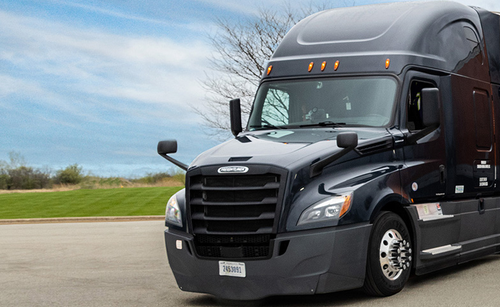How to get an LLC for a trucking business in 5 steps
August 29, 2025

Estimated reading time: 3 minutes
A limited liability company (LLC) is one type of business structure an owner-operator can choose for their business. This structure provides some extra liability protection for the business owner’s personal assets if the company faces debts or financial losses.
Consult with a financial advisor or legal representative to see what’s best for you and your company. If you’d like to get a general idea of how to get an LLC for your trucking business, consider the steps below.
This article is not intended to, and does not, provide legal, tax, or business advice, nor is it intended to be an exhaustive list of all requirements that an owner-operator must follow in connection with starting an LLC. We recommend that you engage with your local state and applicable professional consultants to ensure that you are taking advantage of the best opportunities for your business.
5 steps to set up an LLC for a trucking company
1. Choose a business name.
The first step to setting up an LLC is to pick a name for your trucking business. The name you choose must be unique in the state your business is registered (base jurisdiction). That means you can’t use the same name as another business in the same state.
Check your secretary of state's website to verify if the name you’d like to use is available.
2. Find a registered agent.
Every LLC is required to list a registered agent. A registered agent is a person or third-party service responsible for receiving legal and tax documents on behalf of your LLC.
Your registered agent must, among other state-specific requirements:- Have a physical address in your base state (not just a P.O. box).
- Be available during normal business hours to receive documents.
You may, depending on the state and specific circumstances, be able to act as your own registered agent. However, you must meet the requirements listed above. This may not be an option for owner-operators who are on the road during the day. In that case, you may want to consider selecting another individual or company to act as your registered agent.
Many states have their own specific laws and requirements for registered agents. It's important to review your state’s guidelines for more information, which you can often find on your secretary of state’s website.
3. File Articles of Organization.
Articles of Organization, called Certificate of Organization or Certificate of Formation in some states, are the documents you must fill out to officially establish your LLC within your base state. You can file your Articles of Organization with the secretary of state.
The filing process varies by state and might take anywhere from a few days to a few weeks. Filing fees can range from $50 to $500 depending on the state, plus an annual fee.
4. Apply for an EIN.
An employer identification number (EIN) is like a Social Security number for your business. The Internal Revenue Service (IRS) requires an EIN for reporting taxes and opening business accounts.
You can apply to get an EIN through the IRS website. There is no fee to apply for an EIN.
5. Create an LLC operating agreement.
An operating agreement outlines how your LLC is run. It specifies things like:
- Ownership percentages.
- Decision-making processes.
- Profit distribution.
- Procedures for adding or removing members.
Not all states require LLCs to file an operating agreement. Check your secretary of state’s website to see if it is a requirement for you. If it is required, you can file your operating agreement with the secretary of state.



